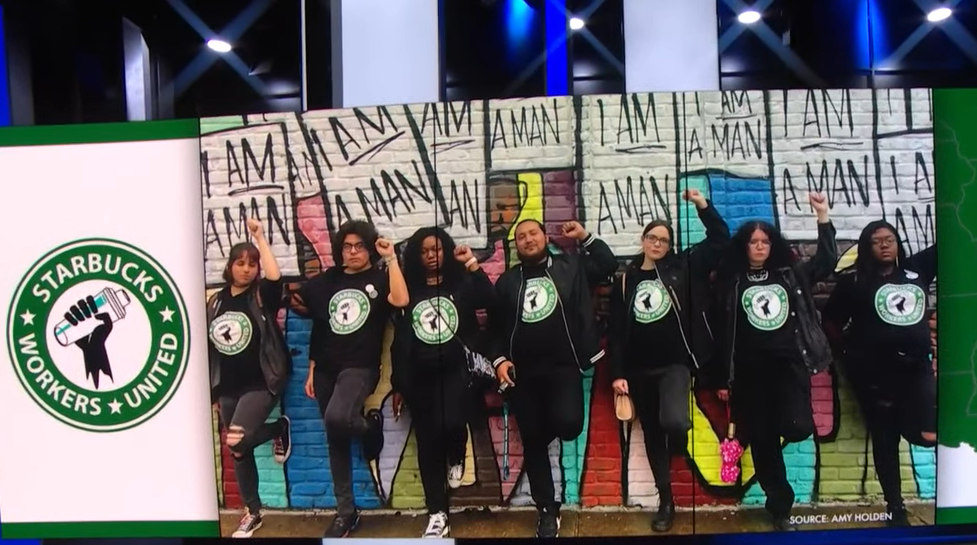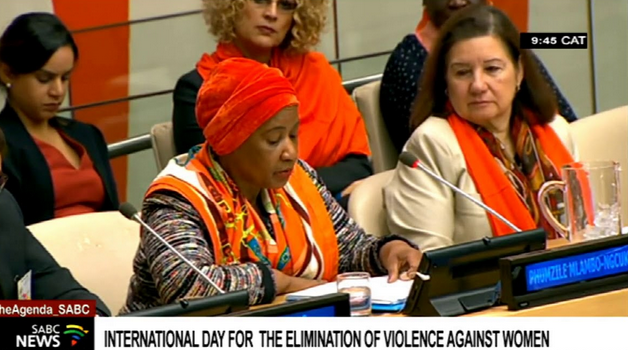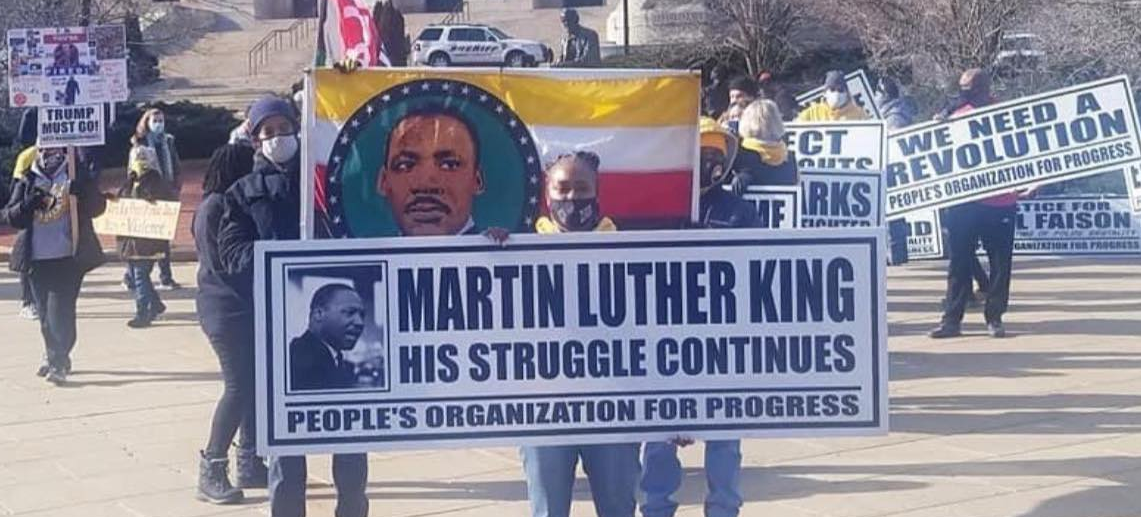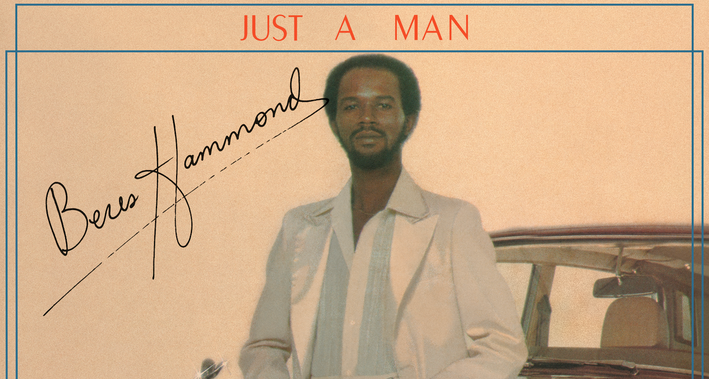Photos: YouTube Screenshots
For good reason, the fight to unionize Starbucks has drawn considerable public attention since workers at a Buffalo, New York store voted to unionize in December of 2021. Since that time, workers at more than 300 stores, representing more than 8000 workers, have so voted.
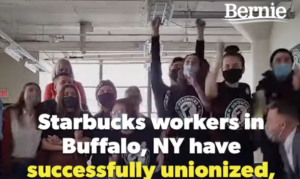
The campaign has been met with strong company resistance, resulting in legal rulings that found Starbucks violating federal labor law by (among other things) illegally surveilling workers, firing workers involved in union organizing, and adding workers at specific workplaces to dilute union strength. In an eventful year-and-a-half, the company has failed to negotiate a single contract.
This union fight, like those at other large corporations, has exposed the public to current practices of “union busting,” and such exposure carries an additional charge in the case of Starbucks because of the personal connections many people have to their local stores and to the workers who prepare and serve their coffee.
But there’s another dimension to the fight that, for many, is less readily apparent, and this has to do with the struggle’s implications for American democracy. As political scientist Danielle Allen put it, a democratic society means “equality entailed in sharing ownership of public life and in co-creating our common world.” That shared ownership and co-creation extends to the workplace as much as it does to other aspects of our everyday lives.
The issue came into sharp relief at a March hearing of the Senate Health, Education, Labor & Pensions committee, a hearing that served as grand political theater for an airing of ideas and attitudes about the Starbucks campaign and about labor relations in general. The committee chair, Senator Bernie Sanders (I-Vermont) focused his introductory remarks and his questioning of former Starbucks CEO Howard Schultz to represent the company’s resistance to the union as sustained, pernicious, and illegal.
Some of the most revealing comments, however, were offered by Mr. Sanders’s colleagues, including those of Senator Mitt Romney (R-Utah). Mr. Romney began by acknowledging the legal right to form a union, and he affirmed the need for accountability if the law is broken. But he disclosed a rather different kind of attitude when he declared, “there are some employers who are not good employers, and a union is necessary to protect the rights of those individuals.” Here Mr. Romney implied that good employers obviate the need for unions in their workplaces, begging the question as to who determines who a good or bad employer is. Mr. Romney went on to say, “there are legitimate reasons why an employer might choose not to become unionized,” suggesting that the question could be decided by the employer, not the workers.
Mr. Romney has it wrong.
The right to form a union and to bargain collectively is a fundamental human right, articulated in Section 7 of the 1935 National Labor Relations Act and in Article 23 of the Universal Declaration of Human Rights. It’s a fundamental building block of a democratic society, strengthening workers’ capacity to impact the conditions and quality of their working lives. To resist good faith negotiations is to violate that fundamental right.
Recognizing these concerns, in March the Starbucks shareholders commissioned an independent investigation of the company’s behavior as measured by core labor standards of the International Labor Association. The shareholders did so over the objections of the Starbucks board.
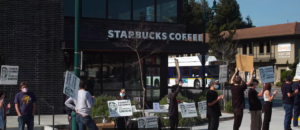
Starbucks union members are demanding, among other things, a base wage of at least $20 an hour; full-time status for individuals working 32 hours a week or more; benefits for those working fewer than 20 hours; and affordable, 100 percent employer-paid health care.
And on their union website, they list “the right to organize” as the first demand, calling on the company to adhere to an “ethical code of conduct designed to safeguard the organizing process.” In pursuit of these aims, unionized workers have engaged in a wide range of strategies, from strikes to a bargaining strategy involving regional in-person meetings.
In their continuing struggle with a $133 billion company, the Starbucks unionized workers and organizers are engaged in fulfilling a basic task of any effective union, i.e. representing the economic and political interests of working-class Americans. In so doing, they underscore the important role that unions play as economic and political counterweights to the hyper-concentration of power by wealthy elites (with the top 1 percent now owning 32.3 percent of the nation’s wealth). This hyper-concentration contributes to the marginalization and precarity of millions, as well as to the degradation of democracy.
As an industry, union busting wastes immense amounts of money ($400 million a year), while suppressing human creativity and the potential for collaborative working environments. This much has been acknowledged by scholars in management, who point out that unions can enhance morale and productivity in workplaces. And it has been understood in countries where the percentage of unionized workers far exceeds that of the U.S. (e.g., more than 60 percent in Denmark and Sweden, for example, versus !0 percent in the U.S.).
If you happen to be reading this column while drinking a cup of Starbucks coffee, it may be possible that the workers at the store where you bought it have voted union. Perhaps not. But whether or not that store is unionized, those workers – and the company – are now in a process of transformation, and the outcome of that transformation will affect far more than a brand. In some ways visible, in some ways less apparent, that transformation will touch us all.
Andrew Moss, syndicated by PeaceVoice, writes on labor and immigration from Los Angeles. He is an emeritus professor (Nonviolence Studies, English) from the California State University.

